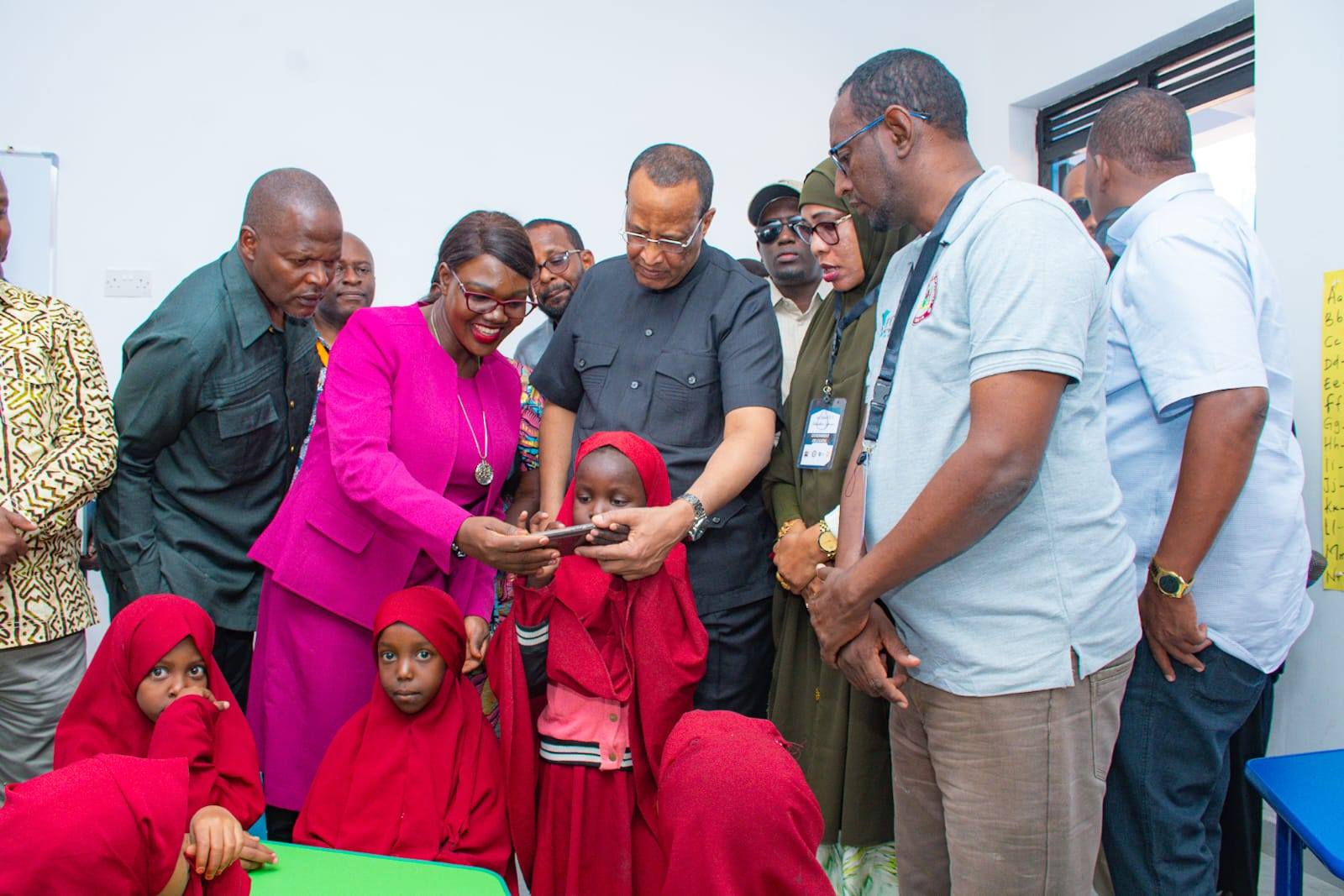
 Children Welfare Services PS, Carren Ageng'o, and Garissa Governor Nathif Jama interact with ECDE
learners at Hyuga Girls' Primary School / STEPHEN ASTARIKO
Children Welfare Services PS, Carren Ageng'o, and Garissa Governor Nathif Jama interact with ECDE
learners at Hyuga Girls' Primary School / STEPHEN ASTARIKOThe government has reaffirmed its commitment to strengthening coordinated systems that protect and empower children.
Children Welfare Services PS Carren Ageng'o said children continue to face violence at home, in school and in the community.
She said many children are neglected, go missing, or suffer in silence due to weak child protection systems and a lack of responsive care.
“Strengthening childcare is not merely about delivering services, it is about creating an ecosystem where children are seen, protected, and supported to thrive,” the PS said during the sixth National Early Childhood Stakeholders’ Conference in Garissa in Tuesday.
Ageng'o said data shows only 67 per cent of children aged three to five years in Kenya are enrolled in early childhood development and education programmes, leaving over one-third without access to structured early learning.
The situation is even more dire in rural and informal settlements, where children face high rates of neglect, malnutrition and harmful traditional practices—all of which threaten their long-term growth and development.
The 2019 Kenya Population and Housing Census reported that more than 4.1 million children in Kenya are under the age of five. Many of them still lack access to quality care, nutrition, or early stimulation.
Further, the Violence Against Children Survey (2019) shows one in two children experience physical violence before they reach 18 years.
It also indicates one in five girls experience sexual violence during childhood, and most are perpetrated by familiar adults within homes and schools, and often these cases go undetected and underreported.
PS Ageng'o said systemic reforms are needed to move beyond responding to individual cases.
Garissa Governor Nathif Jama praised the progress made in ECDE in arid and semi-arid lands, which he credited to devolution.
“ASAL counties have made great strides in ECDE. We've witnessed a paradigm shift in this critical sector, thanks to devolution,” he said.
Jama recalled the early days of his first term in 2013, when children learned under trees and in dilapidated classrooms. Today, Garissa has invested in modern learning structures throughout the county.
Jama said child protection and early childhood development must not operate in silos. He said a child's safety and well-being depend on a strong, integrated system—from family units and health services to community support and national frameworks.
“Fragmented systems delay responses and leave many children, especially those aged below three years and those with disabilities, invisible in data and underserved in practice,” he said.
This year’s conference, themed 'Promoting Transformative Systemic Change in a Child's Ecosystem', brings together ECDE practitioners, researchers, policymakers, and development partners for three days of dialogue.
The conference started on Tuesday and ends today (Thursday).
The goal is to foster evidence-based policy innovation, promote strategic partnerships, and enhance the quality and accessibility of early childhood services across the country.
“If we want resilient systems and sustainable growth, especially in ASAL regions, we must invest early and intentionally,” Governor Jama said.












